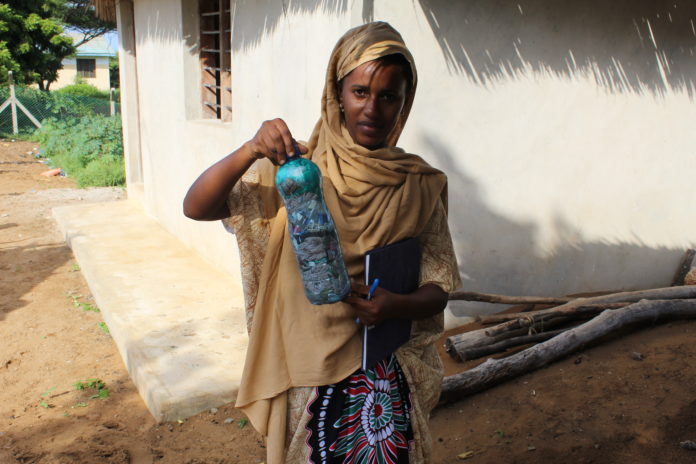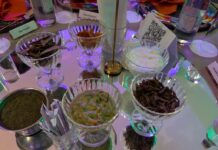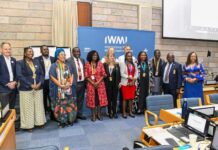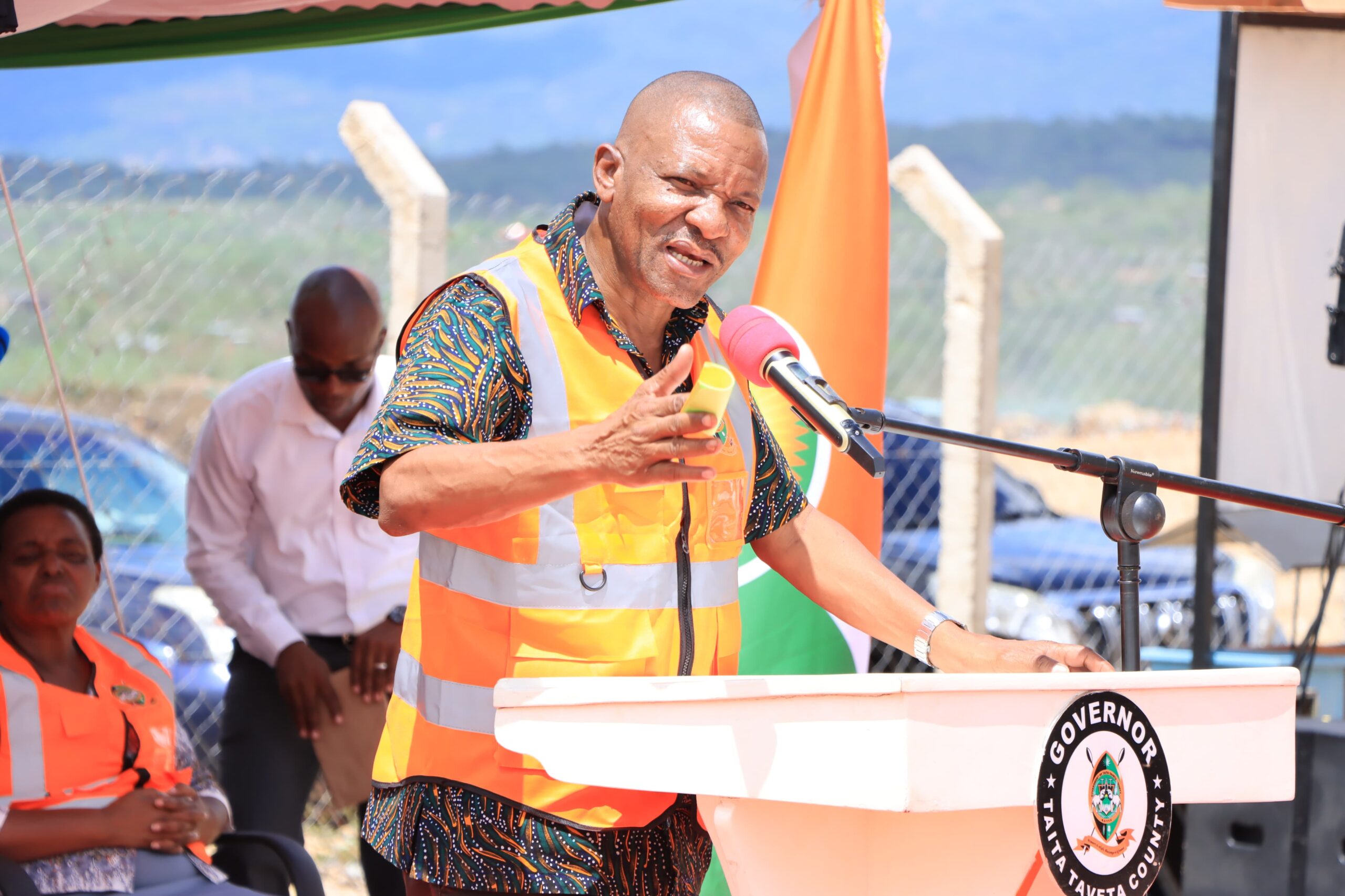|
Getting your Trinity Audio player ready...
|
By Mary Mwendwa
Kiunga, Lamu County: Young women are changing the face of Mkokoni village in Kenya’s Lamu County through their unique project of recycling plastic bottles to make building bricks.
Bahari Moja project has become an admiration for many was started in 2017 through the Kiunga Turtle Conservation Group support and other partners.
The group has 25 members all split into different conservation activities.
Bahari Moja specializes in plastic recycling which was becoming a menace to the ocean ecosystem.
The small village borders the Kenya-Somalia porous Village known for the outlawed militia group of Alshaabab activities.
It takes 8 hours of navigation using a normal boat through the sea and 2 hours using a speed boat to travel to this particular village.
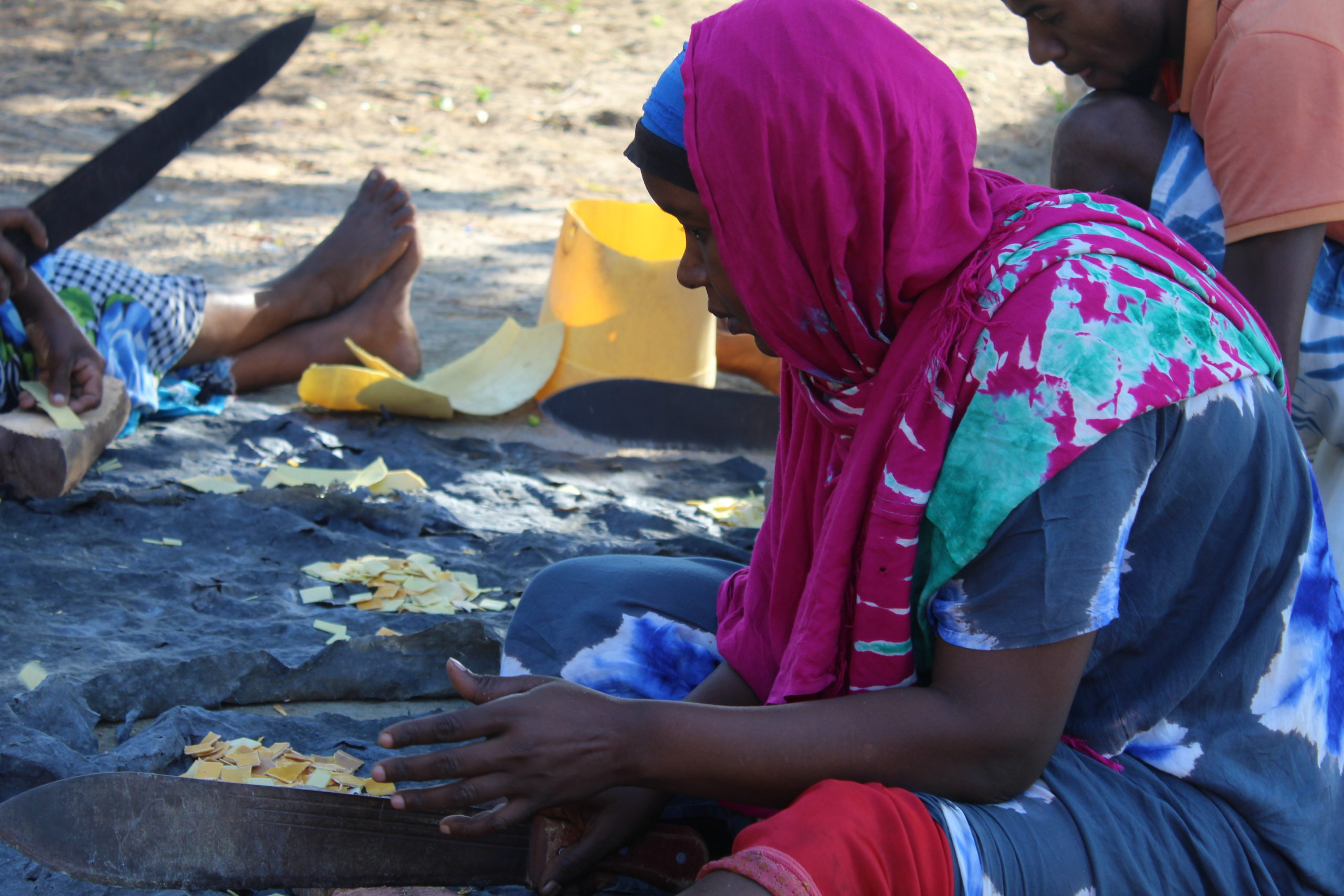
Shali Mohammed, the secretary of the group reveals how the brick-making project has gained popularity in the area and is helping women to make money.
“ Here, men are known to be the masters of fishing and boat business, our women were just idle and doing small businesses which at times could collapse. But, when we started the bricks business, we have money flowing because everyone wants to build their houses using these bricks because they are durable and appear to be very beautiful.”
Mohammed adds that building houses was just a simple activity of using coconut branches famously known as makuti and the sandy soil which is common in the coastal villages.
“Women were only known to be the ones to do the last jobs in the building chain after men have made they kill by putting foundations and other touches, this fetched good money for the men and women could get very little or nothing at all. Now, women are at the top of the chain, they are supplying building material, the recycled brick bottles which they sell at KSH 50 per brick.”
Recycling plastic bottles
Amina Abdalla who is in her early 20s does not regret joining the group.” I joined this group and we started cleaning the ocean by collecting plastic bottles and an idea of recycling came to us. We got training from partners and we decided to roll out the brick-making project.”
“ We get the bottles and stuff them with other waste and make it a very strong material that is mixed inserted into the walls which are usually made of soil. This gives the wall a very strong finishing and also decorates it. We insert the bricks while the walls are still fresh. Everyone here loves to use our bricks for building, so we are in business throughout.”
Abdalla who is a young mother of one says that she is able to supplement her husband’s income and has started saving money for future use. “ I am never broke, this has made me gain respect from other family members, I do not beg but help when necessary.“ We also make flower vessels, key holders, and curtains. The curtains fetch us good money because a piece is sold at 5,000KSH.”
Fatuma Shabir who is 20 years and a member of Bahari Moja believes that women youths can change society if given a chance.” We are setting an example to other upcoming youths that it is possible to be empowered economically while young. This project is a game-changer in this village. We are getting recognized by the fact that we are also protecting water life through our project.”
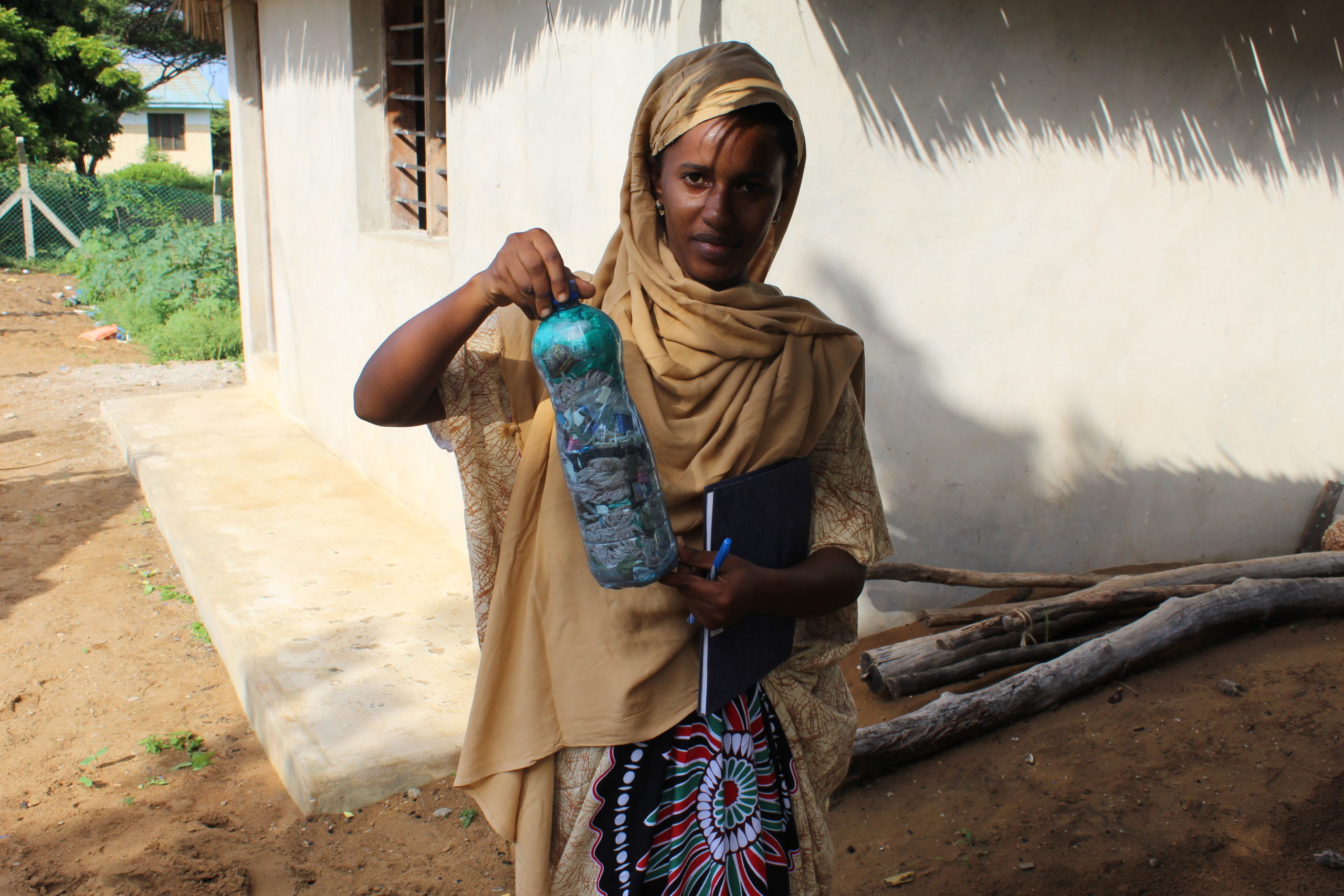
According to Al Hamdou Dorsouma, Acting Director of Climate Change and Green Growth at the African Development Bank, plastic waste has become an issue of much scrutiny and concern over the last few years. “Women’s inclusion in the waste sector needs to be policy-informed to enable a plastic waste management sector that reflects gender parity,” Dorsouma said.
He noted that there needs to be a transition to a circular economy for plastics, involving value chains that are inclusive and gender-equal.
During the blue economy conference held in Kenya in 2018, Kenyan President Uhuru Kenyatta agreed to put policies that harness the economic potential of Kenya’s oceans and coastline.
He called for strong a stop on plastic pollution which was threatening food security and marine life at large.
Bahari Moja group is working smart by helping to boost the blue economy activities by promoting marine life survival through their plastic recycling project.

